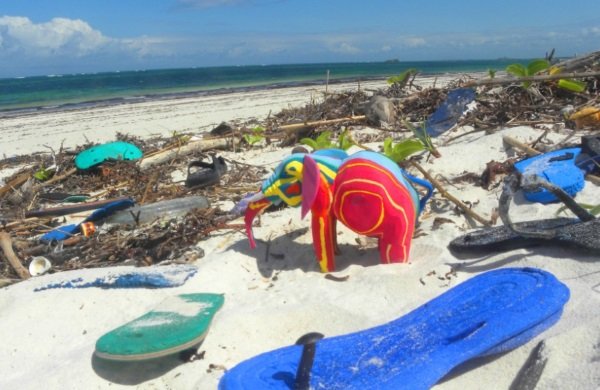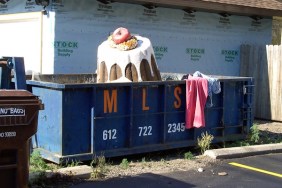Ocean Sole is a Kenya-based conservation group that recycles discarded, washed-up plastic flip-flops into colorful art, leaving clean beaches behind.
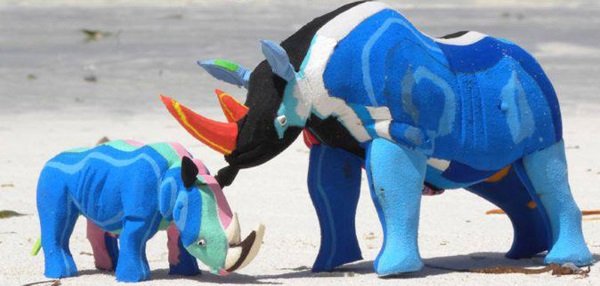
Flip-flops fouling your beaches? It’s more likely than you think, especially in Kenya where cheap plastic footwear has birthed a “sandal scandal” of epic proportions. Consider that a single footwear factory can kick out up to 100,000 pairs of flip-flops each and every day. No wonder folks look at flip-flops as disposable. It wouldn’t be a problem if they were biodegradable… but they aren’t.
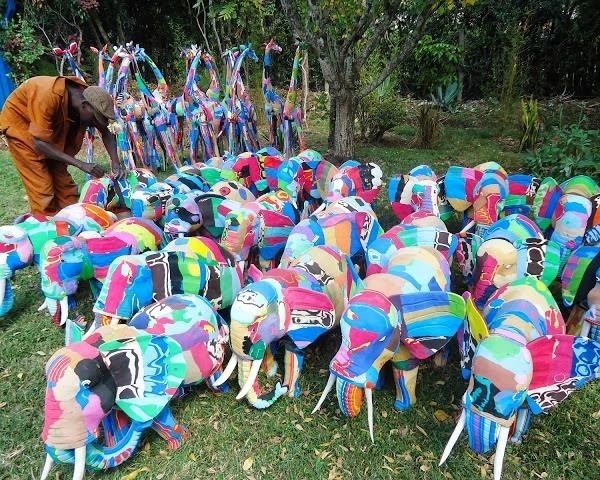
Most flip-flops are composed of polyurethane foam, a plastic that floats in seawater. This leads to improperly discarded sandals being washed up on beaches and seashores. Polyurethane is a Number 7 Resin (referring to the digit enclosed in an inverted triangle imprinted on consumer product plastics), which is difficult to recycle. This combination of cheapness, lightness, and non-biodegradability is the reason why so many flip-flops wind up on ocean beaches.
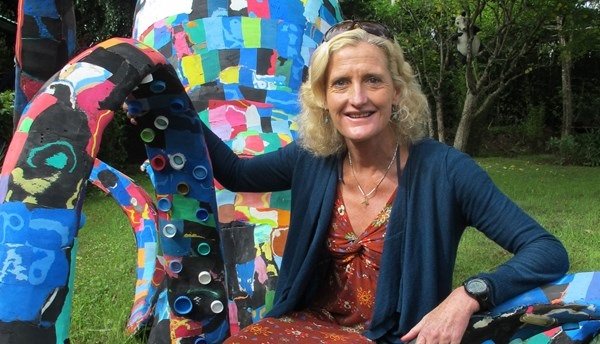
What to do? Well, there are two options: ignore the plague of polychromatic plastic or recognize the problem and do something about it. Julie Church (above), who founded Ocean Sole in 1999, decided to pursue the latter course of action. Church states she got her inspiration from local children from her hometown of Kiwayu. The kids would find discarded flip-flops washed up on the beaches and repurpose them into toys and artworks to sell to tourists. She then encouraged the children’s mothers to collect and clean the washed-up thongs. This gave the children more time to re-work the material without neglecting their chores and studies.
